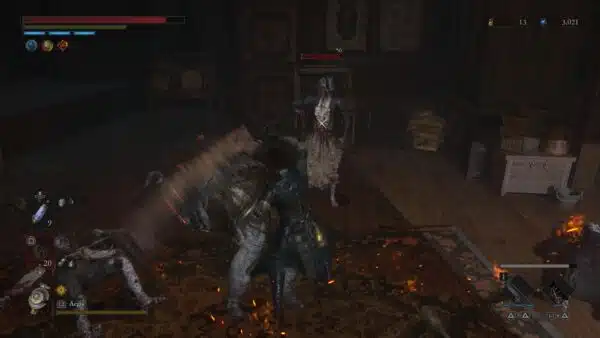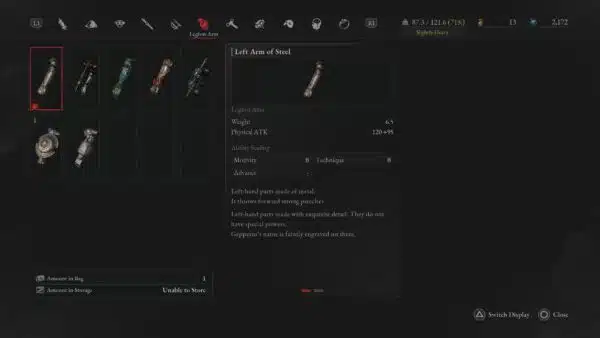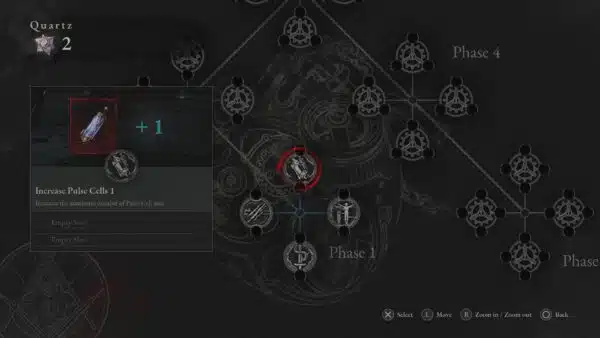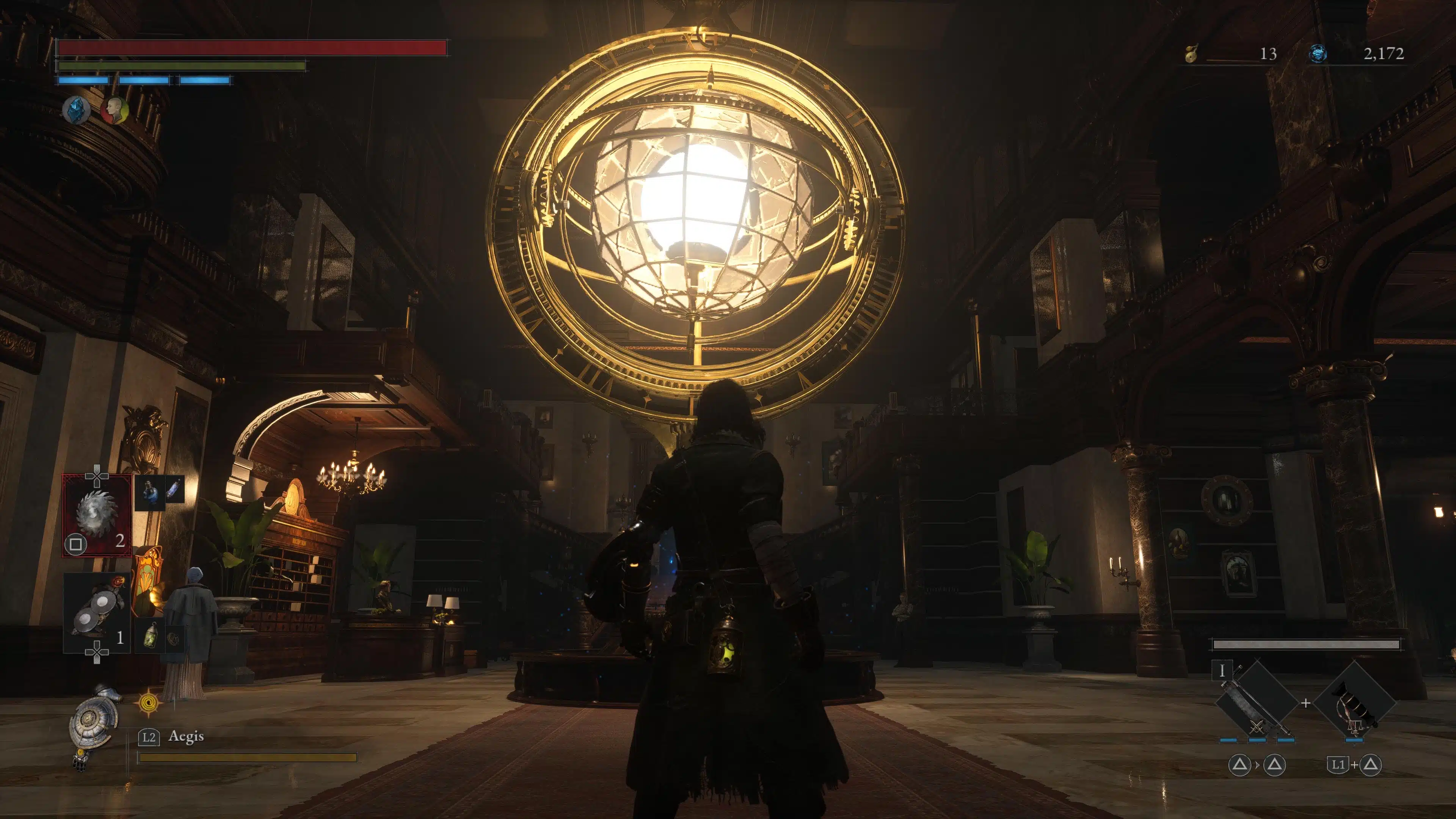“Imitation is the sincerest form of flattery” is the adage. Since FromSoftware shook the gaming world up with Demon’s Souls and more importantly, Dark Souls, the Soulslike as a bonafide genre has been growing in popularity. It seems that now several times a year, a new Soulslike arrives to put its own stamp on the genre. In most cases, the budget is such that none of the games can ever truly stand shoulder to shoulder with FromSoftwares’ seminal works, but there’s usually something unique enough to make them stand out. And, in most cases, it’s just the trappings like “bonfires, souls, massive boss fights, and challenging but fair difficulty. Usually the developers take the gameplay concepts and mechanics and infuse them with something fresh and place them in a world that feels (for the most part) unique. However, none of them can match the craftsmanship and feel of FromSoftware’s best games.
- Related Reading: Lies of P Tips & Tricks for Beginners
Then there is Lies of P from South Korean studios, Neowiz Games and Round8 Studio. While the narrative is based loosely on the novel The Adventures of Pinocchio, near everything else is based on FromSoftware’s seminal PS4 classic, Bloodborne. Full-disclosure, FromSoftware is my favorite developers and Bloodborne is my favorite game of all-time. After 40 hours with Lies of P I can safely say Lies of P is yet another game that tries to stand shoulder to shoulder with FromSoftware’s best but comes up short in a lot of important ways.

At this point, everyone should know what a Soulslike is so explaining the mechanics is just redundant. The tropes are the same, only names have changed. Bonfires are now Stargazers, Souls are now Ergo, Hunter’s Dream/The Nexus/Firelink Shrine, etc is now The Krat Hotel, and so on. Light and heavy attacks, parrying, visceral attacks, etc. Strength, stamina, vitally stats that affect weapons scaling, yada, yada, etc, etc. It’s in these aspects that Lies of P does a pretty good to great approximation of the Souls formula. In most cases there is a one-to-one comparison and they’re done well.
Where Lies of P sets itself apart is in it’s leveling up mechanics, and while some parts prove to be inspire and special, the rest feel cumbersome and overly complicated. It’s as if Neowiz and Round8 got so deep into copying From’s best works they overcorrected in an attempt to set themselves apart. For me, there were too many and took way too long to become truly useful making the first half of the game more of a struggle than it needed to be. It feels like artificial challenge for challenge’s sake. Something I’ve never felt in a FromSoftware Souls game or Sekiro.
The other aspect that sets itself apart from other is how the story is told. Way more straightforward, with lots of cutscenes, conversations and dialogue options, the story unfolds in a much more traditional sense. As someone who doesn’t have an issue with how From tells their stories, I know others do prefer something that requires less work so they should be served well here. And it’s fun to see the twisted ways Lies of P incorporates the characters from The Adventures of Pinocchio. That story is plenty weird on its own, so kudos to Neowiz and Round8 for coming up with interesting spins on the characters.

First, what does work: the weapon assembly system. With the exception of “Special weapons” (Boss weapons) every weapon you find comes with a “blades” (even if the weapon is a club or hammer) and handles. These can be mixed and matched. For example, through most of my playthrough I used the bone-cutting Saw blade on the Krat Police Baton handle. It made my swings shorter, more chop-like motions that still did big damage but allowed for less stamina consumption. There’s a lot of variety afforded by this system and it was fun trying out the different weapons.
Bosses, for the most part, are pretty cool. Aesthetically, they look great. They’re all unique and play into the theme and the story really well. The combat, however, is hit and miss. Mostly because bosses can turn on a dime, mid animation, and clip you with a move that really shouldn’t be hitting you. And because their hits are so frequent and drain so much of your stamina to block it’s very common that you’ll be knocked on your ass and become susceptible for another blow. Don’t worry though, your slow animation to get up can be mitigated by adding the right node to the P-Organ be able to dodge from the ground. But again, that ability doesn’t become available to you for at least 10-15 hours. So in the meantime you’re stuck getting pummeled over and over again while knocked on the ground. It makes what could be invigorating and adrenaline pumping fights more exercises in frustration where instead of that elated feeling you should get it feels more like “I’m glad that’s over with.”

Thankfully, you have the option for a companion in the fight. While there’s no co-op, you can summon a specter from a little blue, glowing pool, It’s the same specter every time so my guess is that the specter was a late game feature that was a result of play testing. You can later use another mechanic to keep them alive longer but for most of the game they’re really only good for distracting the boss while you heal or close the gap.
There’s also a Sekiro prosthetic arm-like mechanic with the “Legion Arm.” It’s a limited use tool with various levels to be used in combat. They each scale with specific stats so there’s a good chance only a couple will prove useful. These have a limited “ammo” type that doesn’t refill enough, even using everything you can carry, so you’ll have to strategize when to best use them.

My biggest issue overall is that everything else is so needlessly overcomplicated and dolled out so slowly that it took over half the game before I found a combination of things I liked and settle into a viable playstyle. The most nagging gripe are the upgrade materials. For boss weapons they’re extremely rare and I wound up using a good chunk on a weapon I ultimately didn’t like and when I found one I did, I couldn’t viably use it because I couldn’t upgrade it to make it more powerful and useful than what I was already using.
- More Lies of P Reading: How to Level Up Fast in Lies of P
Then there’s the P-Organ. It’s a good system that can definitely let the player customize and prioritize certain abilities/attributes, but the material used to upgrade (Quartz) is incredibly limited so upgrading to the better tiers won’t happen until much later in the game. The problem is that it takes hours before this system is even introduced and you could wind up using some extremely hard to come by Quartz on skills you don’t really want or will be bested later. Same goes for leveling up. It’s EXTREMELY slow going in Lies of P. And it’s extremely easy to spec yourself into a corner, making it harder for yourself as you settle into a playstyle that works. And the ability to respec your P-Organ and stats doesn’t come for at least half the game and even that requires yet another currency, this one is on a timer that you can speed up if you have a specific consumable but those are even rarer. Locking crucial abilities like being able to double dodge, or dodge out of the way after being knocked down are kept here making it all the more frustrating.

It’s like the devs wanted to pad out the game for some inexplicable reason so they drip-feed things you need to make the game more enjoyable and felt they could get by on everything else. And for some, that might be enough. For me these systems felt like a hinderance for the first half of the game. For example, why is the one vendor with unlimited supply of items kept from the player for so long into the game? It caused me to mostly brute force my way though bosses, by farming things, stocking up on throwable items, and through sheer force of will getting through to the next area. Only on a few occasions did I feel like I genuinely earned my victory rather than just throwing things, doing damage that way. If I sound like I’m nit-picking, I’m not trying to. I found these things to be incredibly frustrating and flow-breaking. I would be enjoying myself for large sections of the game only to get reminded of these frustrating issues, stymying my enjoyment.
Ultimately, for a first attempt, Lies of P is a solid Soulslike that should keep fans of the genre happy and frustrated for the entire runtime. It’s clear Neowiz and Round8 have an affection for their inspiration even if they don’t quite have the skill to match.
Score: 7/10
Pros:
- It’s a really good looking, polished game
- Combat is mostly fun and controls extremely well
- Weapon assembly makes for fun experimentation
- Legion Arm adds strategy to combat
- Bosses look fantastic
- It’s extremely familiar to From’s games. Namely Bloodborne, and to a lesser extent, Sekiro
Cons:
- It’s extremely familiar to From’s games. Namely Bloodborne, and to a lesser extent, Sekiro
- The game takes took long to introduce important systems and mechanics that make the game more fun
- Upgrade materials are way too rare so you have to pretty much focus on one weapon and stick to it
- Bosses can sometimes hit you in ways that feel cheap and unfair and do way too much damage
- The Specter summon doesn’t do much but distract the bosses
Lies of P review code provided by the publisher. You can read MP1st’s review and scoring policy right here.
